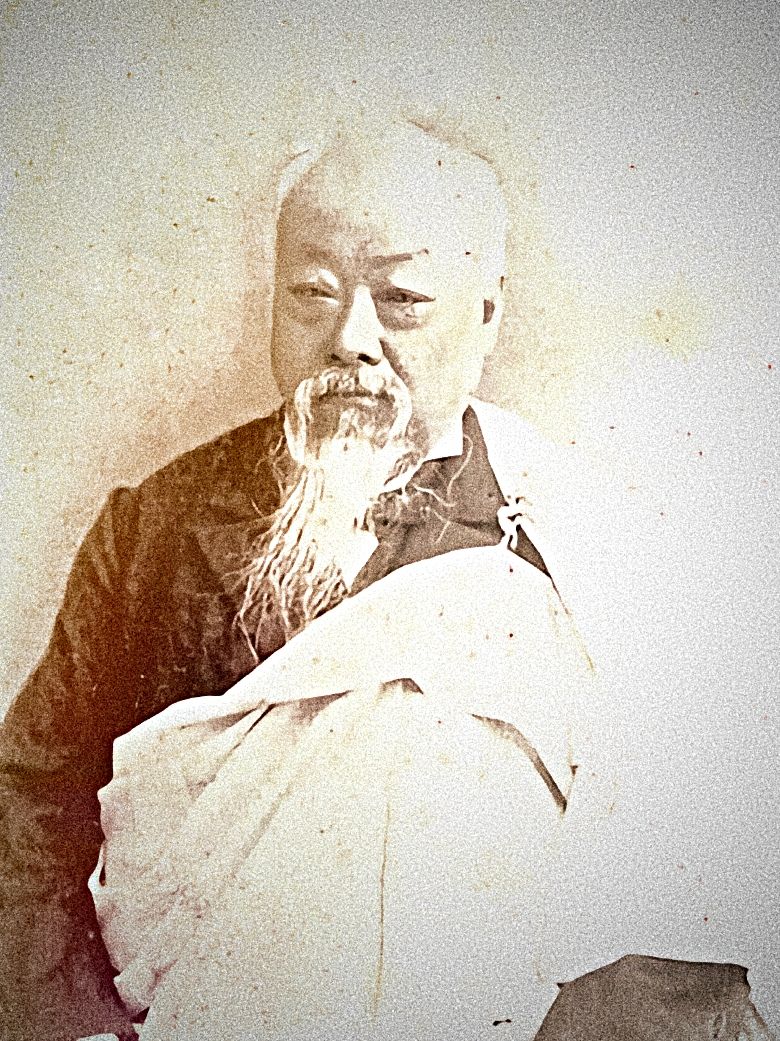Each moment in our life is unique and precious. We must value and experience them with the attention and focus they deserve. And for those moments that bring us unhappiness and disappointment, we must learn to let them slip from our grasp.
Ichi-go ichi-e 一期一会 [pronounced “ich-eee go ich-eee eh”] means “one moment [in time], one meeting" — and is one of the crown jewel concepts in karatedō.
The fundamental lessson is this: each moment in time is unique, precious, and can never be repeated.
From that concept comes two very important ideas.
Value Each Moment
As much as our lives are made up of a series of individual moments (read more about this idea, and the concept ichinichi issho, here), every single moment in our life is precious and potentially pivotal.
Since that's true, that also means that to waste each of those moments is certainly foolish. It would be akin to having a treasure chest brimming with gold coins, and then at a whim, flinging those coins out the window. Certainly you wouldn't do that; yet, do you treat the moments of your life with the same serious level of care?
The moment in time in which you currently exist is unique: it will never be repeated. You're spending that moment reading about ichi-go ichi-e 一期一会 and presumably that's a good use of this particular moment (we hope so, at least!). Always choose wisely, and always spend the moments you have so that they truly reflect your core philosophy.
Can you do that all the time, for every single moment of your life? Certainly not. No one is that superhuman, and quite frankly, no one should want to live a life like that. The moments of supreme randomness that delight can be as rewarding as the carefully curated and cultivated moments that we plan.
Consider the cherry blossoms that flower each Spring, in special places around the world. In Japan, and in places like New York City's Central Park and in Washnington, D.C., the blooming of cherry blossoms is a celebrated event.

Yet, those blossoms barely last a few weeks, and then they're gone. They are the perfect metaphor for ichi-go ichi-e. The cherry blossoms are treasured in the moments that they exist, and then those moments are gone forever, never to be repeated. Next year, new cherry blossoms will appear, but they are as unique in and of themselves as the current year's blossoms.
We must appreciate and value the cherry blossoms that exist right now in our lives, fully experience and appreciate them, and then understand that we move to the next moment.
Spend Your Moments Wisely
Consider carefully and often how you spend the moments of your day and your life. Value each as much as you can, and value each at their true worth: they are the bricks and mortar of your life.
As an aside, it's important to address the idea of "living in the moment" as a philosophy. The idea of "living in the moment" is to simply focus on each moment as if it was an end-goal, not as a bridge to the past and a path to the future, as ichinichi issho teaches us.
Rather, ichi-go ichi-e teaches us to value each moment and to focus on it, but not that each moment by itself is a reason for existence. Each moment is a tool, an opportunity. Those moments are tools to achive our goals (mokuteki: read more) and an opportunity to fulfill our purpose (ikigai: read more). Those moments are not the reason we exist: that kind of thinking leads to the vapid life that we so often find promoted by social media, as an example.
Do Not Become Trapped in the Moment
There is another important concept that ichi-go ichi-e teaches us, however.
To illustrate this idea, consider this story.
There was a very well-known monk, named Tanzan Hara. Tanzan was a famous Zen Buddhist monk of the Meiji Period and was also a well-respected Buddhist scholar having became the first lecturer in Zen Bhuddist philosophy at Tokyo University.
He was on a trip, walking through a fairly heavily wooded area, accompanied by a junior monk and assistant.
As they walked through the forest, his junior assistant asked many questions about life, philosophy, and the universe, and Tanzan attempted to answer his questions.
They came upon a young woman, quite attractive in appearance and dressed in the clothing of someone in the upper classes of society, pretty and fashionable. She had paused on the banks of a shallow stream, considering how to cross it without getting her clothes wet and dirty.

So, Tanzan approached, and asked her is she wished some assistance in crossing the stream. Having received her affirmative reply, he picked her up, and carefully carried her across the stream, and then deposited her on the other bank, dry and clean. For his actions, he received the young woman's grateful thanks, and she continued on her way, as Tanzan and his assistant continue a different direction, on their own journey through the forest.
Tanzan and his assistant walked for several more hours, just as before. But there was one difference: whereas before meeting the young woman, his assistant was a non-stop chattering source of questions and comments, now he fell silent.
Tanzan noted the change, but said nothing and the pair continued walking through the forest, now silent.
After some hours, they stopped and made camp, gathering firewood and building a small fire. As they sat there, the assistant finally asked Tanzan "Oh learned Monk, we are told to cloister ourselves from the world of women, and to keep our own company only. But I am confused: why did you pick up and carry that woman earlier, and have a conversation with her?"
Tanzan looked at his junior acolyte, and replied "I put the young woman down hours ago. Clearly, you are still carrying her."
Tanzan's point was this: there will be many moments in your life when something might disturb you, upset you, even anger you. But if you don't let those moments go, and slip away into the past, you risk having those moments poison your future moments and the opportunities that they represent.
In class, for instance, you might fail at a complex combination, missing several techniques. Yet, if you dwell on this failure, you risk falling behind in the count, and worse, you lose the opportunity to do that combination again, but this time correctly.
Remember to always "put down the young woman" – and put down and let go of the moments that trouble you. The next moment that follows has a chance to be an amazing one of success and accomplishment, and you deserve that chance to make it so.
The Moments that Make You
Our identity and life are intertwined with the moments of our life.
The amazingly precious moments that we experience give us joy and accomplishment: the first steps of our son, the romantic dinner with our spouse, the amazing promotion at work. And yes, even that new rank belt.
The moments of failure, of sadness, and of disappointment give us strength, intensity, and the desire to move forward and do better: we fail to become stronger in the next moment, we anger so that we build intensity and passion in the future, and we grieve to remember past moments we have lost and to celebrate them in the future so that we might not forget them.
All of these moments make up who and what we are. Treasure them, and value them.
| Kanji/Katakana | Meaning |
|---|---|
| 一 | one (ichi) |
| 期 | moment (go) |
| 一 | one (ichi) |
| 会 | meeting (e/kai) |
Editor's Note: This lecture was first delivered by Sensei at the Goju Karate dojo in San Rafael, California on 10 June 2015; this concept was presented again at the Goju Karate NYC Dojo on 2 August 2023.



![Ikioi — Momentum 勢い [Edition 2025]](https://images.unsplash.com/photo-1691568520168-d74572f43f62?crop=entropy&cs=tinysrgb&fit=max&fm=jpg&ixid=M3wxMTc3M3wwfDF8c2VhcmNofDYyfHxtb21lbnR1bXxlbnwwfHx8fDE3NDczNDY5MDJ8MA&ixlib=rb-4.1.0&q=80&w=720)
![Taikibansei — Great Talent, Evening Forming 大器晩成 [Edition 2025]](https://images.unsplash.com/photo-1534447677768-be436bb09401?crop=entropy&cs=tinysrgb&fit=max&fm=jpg&ixid=M3wxMTc3M3wwfDF8c2VhcmNofDIzfHxzaG9vdGluZyUyMHN0YXJ8ZW58MHx8fHwxNzQ0MTU3MTQzfDA&ixlib=rb-4.0.3&q=80&w=720)
![Gaden Insui — Pull Water to My Own Rice Paddy 我田引水 [Edition 2025]](https://images.unsplash.com/photo-1512117789060-5de1ecef9eb7?crop=entropy&cs=tinysrgb&fit=max&fm=jpg&ixid=M3wxMTc3M3wwfDF8c2VhcmNofDF8fHN0YW5kJTIwdXB8ZW58MHx8fHwxNzQzMzYwMTAzfDA&ixlib=rb-4.0.3&q=80&w=720)